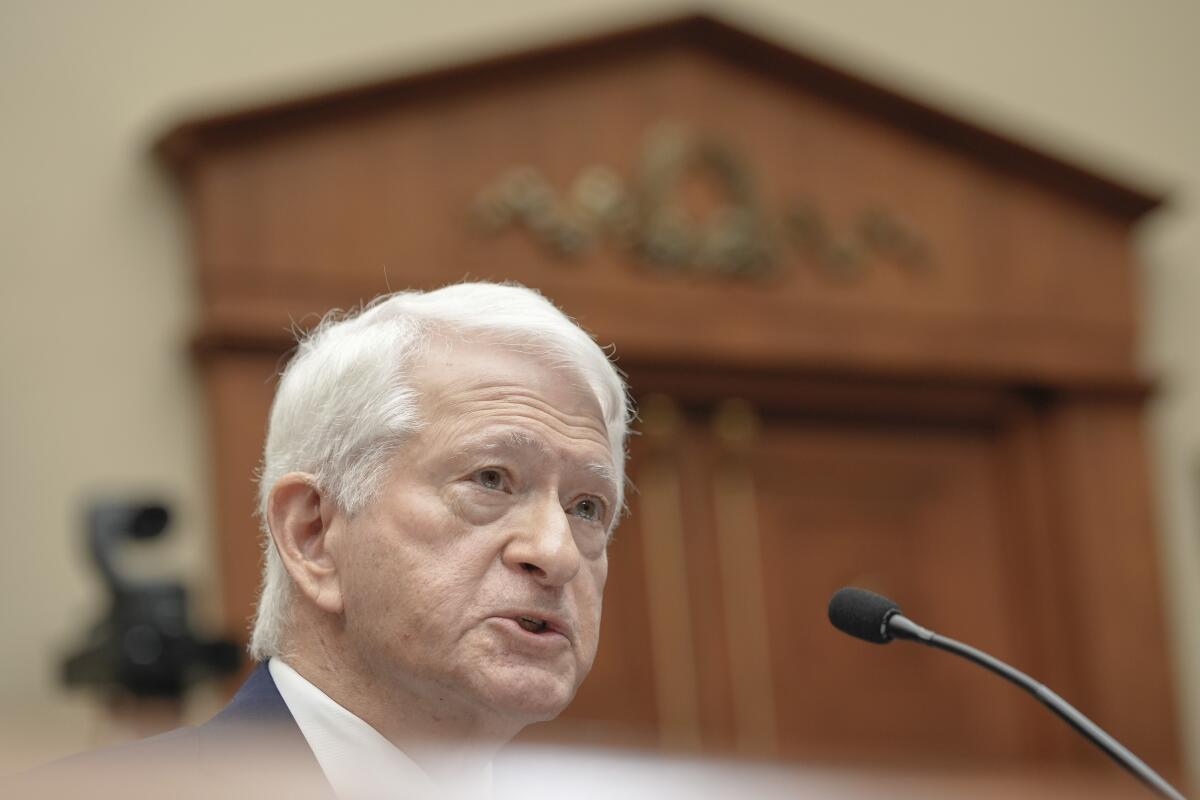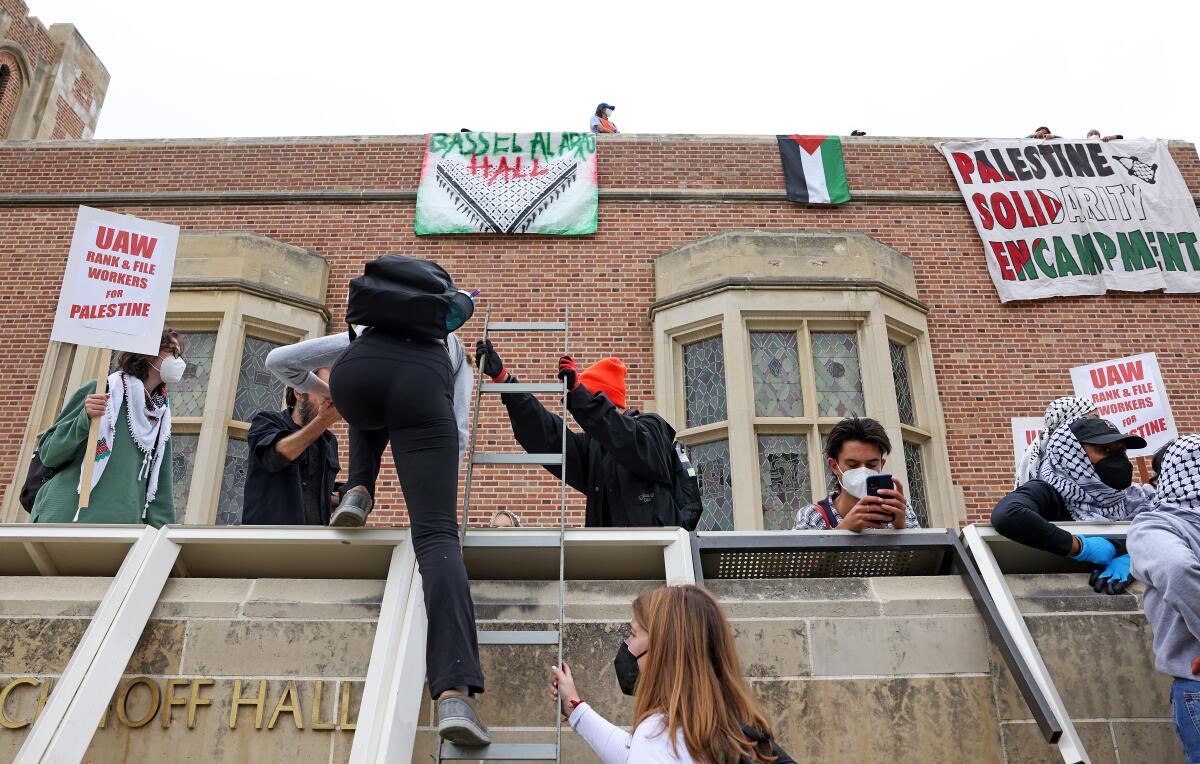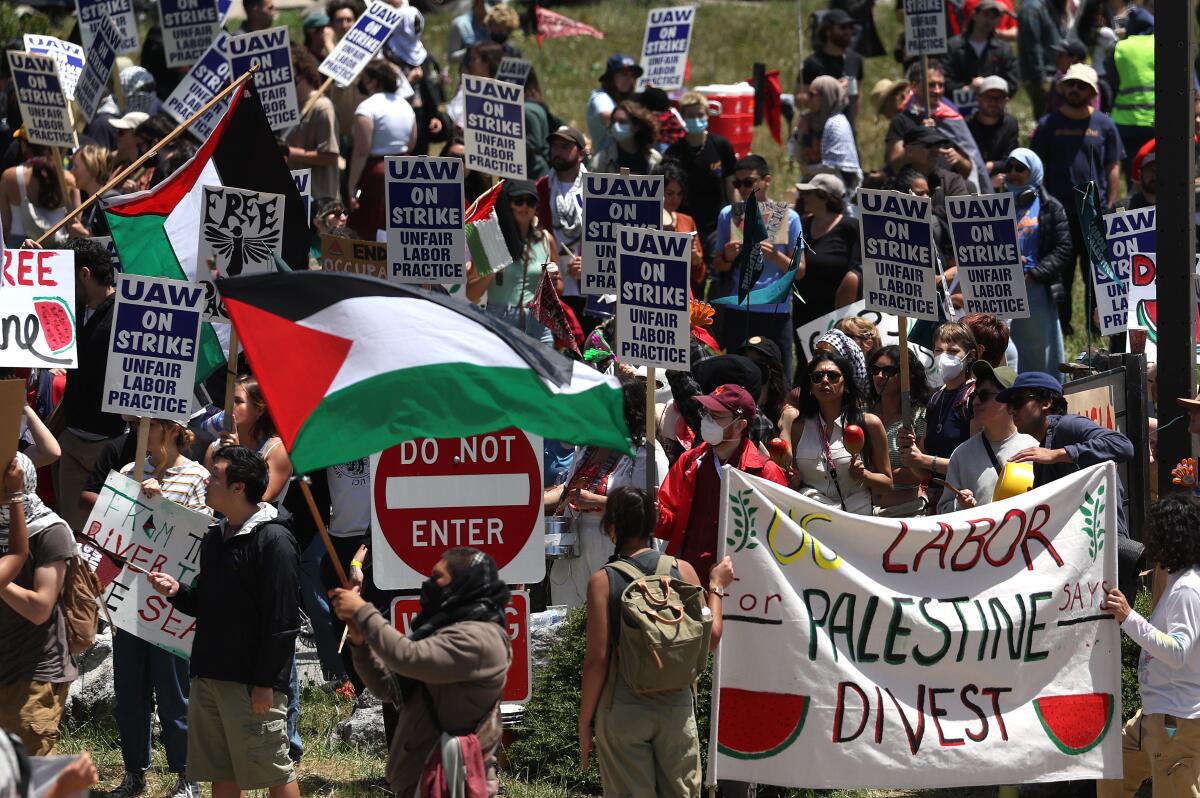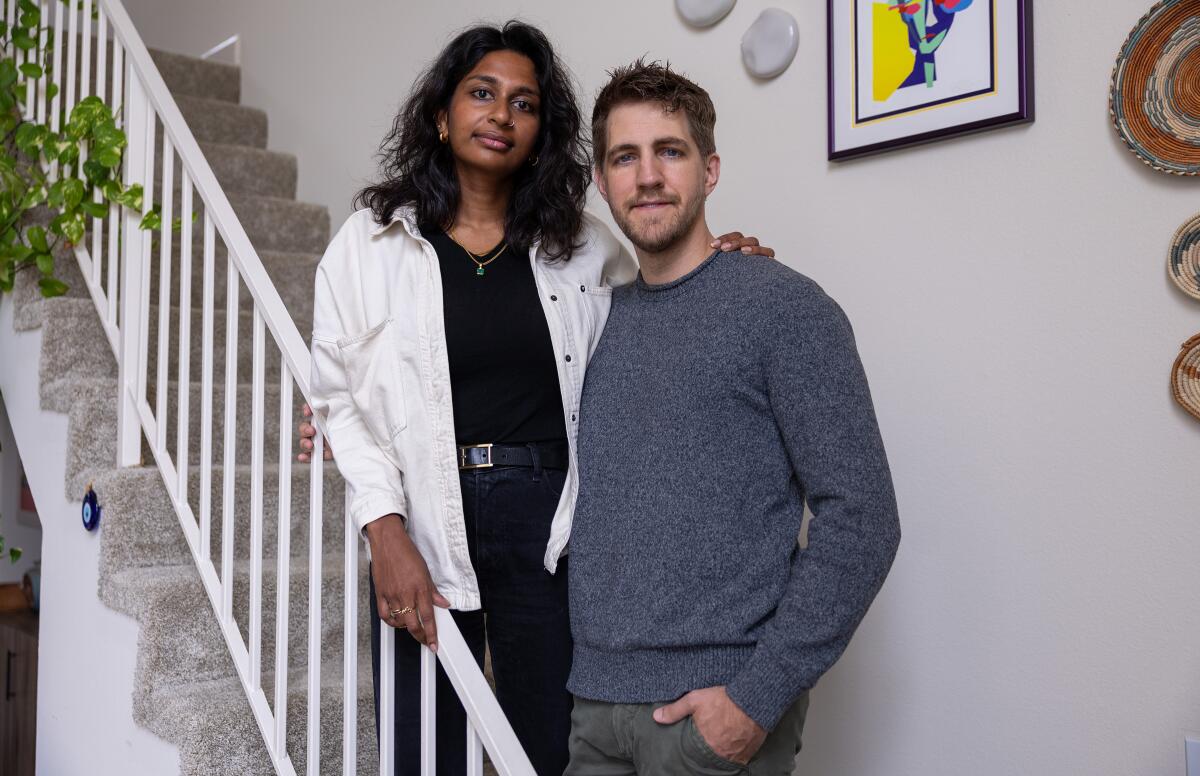Good morning. It’s Friday, May 24. Here’s what you need to know to start your day.
What to know about the UC campus turmoil this week
The University of California has become one of many national flash points over the Israel-Hamas war — but also over how college leaders have handled occupations, 1st Amendment issues and violence on their campuses.
A new encampment was formed, but quickly dismantled by police, at UCLA yesterday. Up the coast in Santa Cruz, unionized academic workers walked off the job in the first of what could become a slate of strikes across the UC campuses, aimed at officials over their handling of Gaza war protests. And the campus strife has the attention of federal lawmakers in Washington, D.C.
Here’s a quick primer on the various controversies swirling across the UC system.
UCLA chancellor testifies before congressional committee
Gene Block sat before the House Committee on Education and the Workforce on Thursday, where he was grilled about his decision-making regarding the pro-Palestinian encampment that assembled on campus on April 25.
The UCLA encampment was deemed an unlawful assembly by school officials on April 30. Students and staff participating in the action were given written warning to leave or face disciplinary action. Later that same night, a mob attacked the pro-Palestinian protesters.
The violence continued for roughly three hours before police reinforcements arrived to quell the mayhem. At least a dozen people were reportedly injured during the attack. Two nights later, police swarmed the campus to dismantle the encampment, arresting about 200 people.

UCLA Chancellor Gene Block testifies Thursday in Washington during a hearing of the House Committee on Education and the Workforce regarding pro-Palestinian protests on college campuses. (Mariam Zuhaib / Associated Press)
“With the benefit of hindsight, we should have been prepared to immediately remove the encampment if and when the safety of our community was put at risk,” Block said in his opening remarks.
UCLA Police Chief John Thomas was removed from his position and reassigned this week.
Block also faced questions about antisemitism on campus, telling the panel that “many of our Jewish students have had to confront rhetoric and images on campus that any reasonable person would find repugnant.”
“We have a legal obligation under the 1st Amendment to protect free speech on campus, as well as a legal obligation under federal law to protect students from discrimination and harassment,” he said. “This balance is not always easy to achieve.”
Here are four takeaways from his hearing.
A new pro-Palestinian encampment at UCLA is dismantled
About the same time Block told congressional leaders that there were no encampments on UCLA’s campus, a new group of protesters set up a few tents on the Kerckhoff patio.
By afternoon, several hundred supporters, including academic union members, joined the protesters outside the encampment, facing off with officers in riot gear who had descended on the campus. There were no immediate reports of arrests or injuries.

UCLA protesters climb a ladder at Kerckhoff Hall as they try to build a new Palestinian solidarity encampment on campus on Thursday. (Christina House / Los Angeles Times)
Classes held near the encampment were shifted online. Administrators, in a letter to protesters, said those in the encampment could face disciplinary and legal action if they did not disband.
As more supporters showed up near the encampment, officers prevented people from entering the area and used police tape to block the entrance to the site. The Times reported that some protesters went through the tape to deliver water to those in the camp.
Protesters chanting “Free Palestine” marched outside the neighboring Mathematical Sciences Building, but withdrew to an area near Murphy Hall after officers pushed the crowd back. The encampment was later dismantled.
UC workers on strike
Academic workers represented by United Auto Workers 4811 walked off their jobs Monday at UC Santa Cruz. It’s the first of a series of rolling strikes the union has planned across the UC system.
“The academic workers contend that their free speech rights were violated when system leaders called on police to forcibly remove pro-Palestinian encampments at several campuses and activists at UCLA were not protected from a mob attack for hours,” our colleagues Kaleem and Howard Blume reported earlier this week.

UC Santa Cruz workers and pro-Palestinian protesters carry signs as they demonstrate in front of the campus on May 20, 2024. (Justin Sullivan / Getty Images)
UC officials and union leaders each accuse the other of violating labor rules. The university filed a request for an injunction on Tuesday with the California Public Employment Relations Board, calling the strike unlawful. The request was denied.
Union leaders, meanwhile, have taken issue with recent disciplinary guidelines approved last week by the UC’s governing Board of Regents, which states:
“Any member of the university community who is arrested for unlawful behavior or cited for a violation of university policy must go through the applicable review process, such as student code of conduct or employee disciplinary process.”
The regents added that “amnesty for students, faculty and staff is inconsistent with this guideline.”
Union leaders have demanded amnesty for its workers, along with students, faculty and other UC staff who participate in protests and subsequently face arrest or disciplinary action.
Today’s top stories

Nikeeta Sriram, left, and Peter Banachowski, right, have been fighting Airbnb to stop guests from entering the home. (Brian van der Brug/Los Angeles Times)
Crime and courts
Memorial Day Weekend
Climate and environment
Music
More big stories
No comments:
Post a Comment